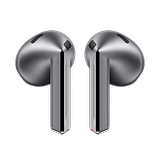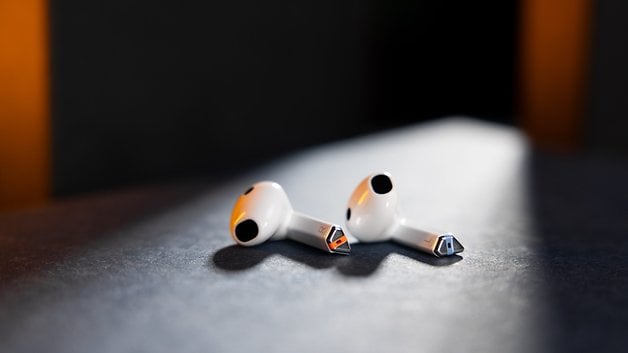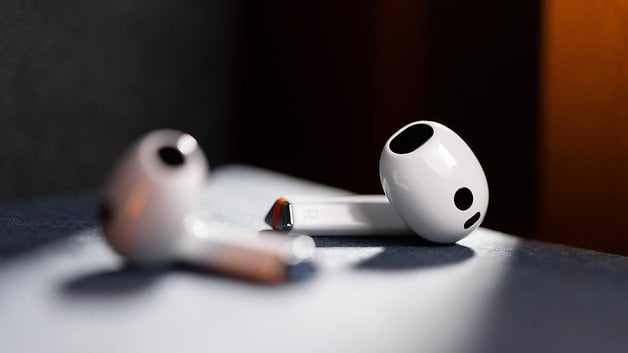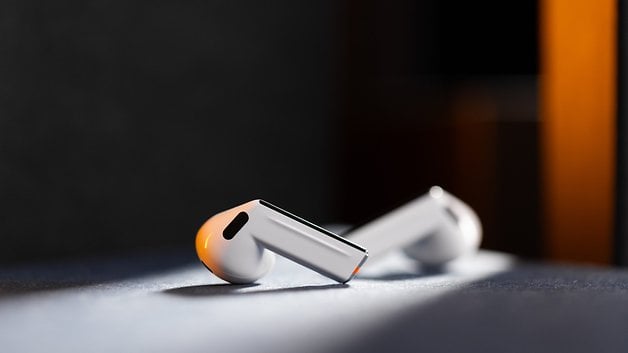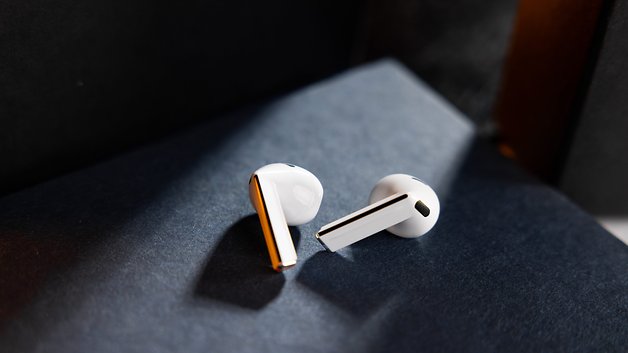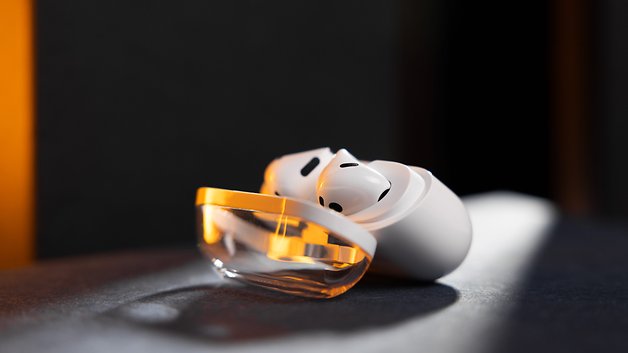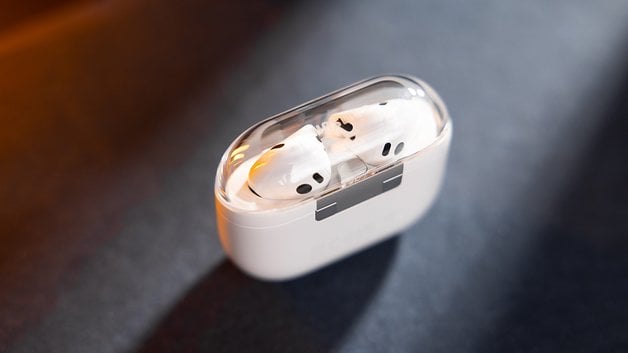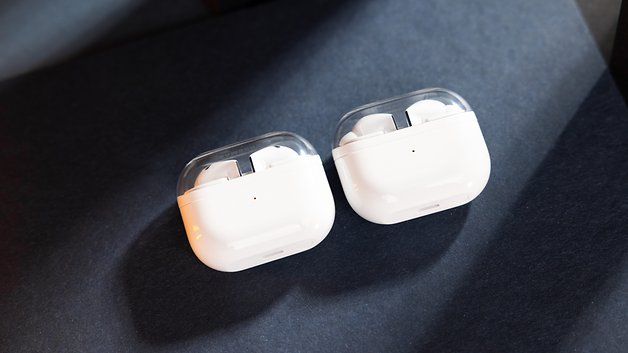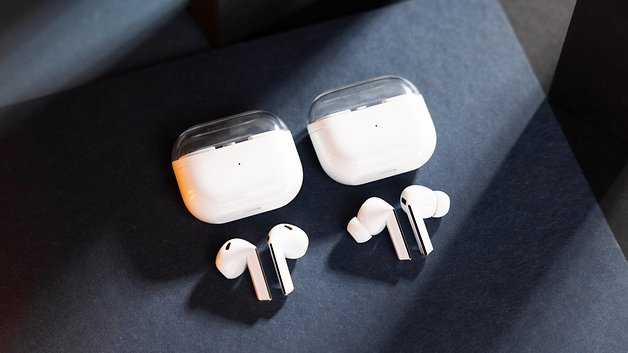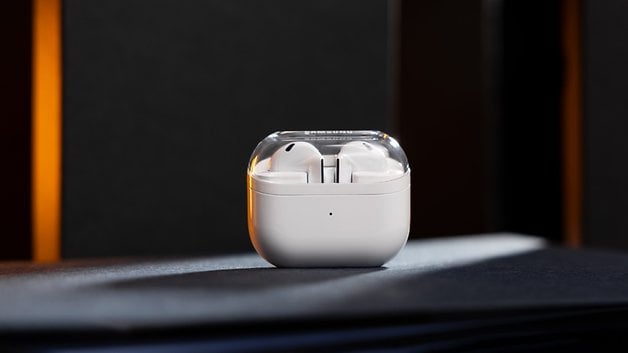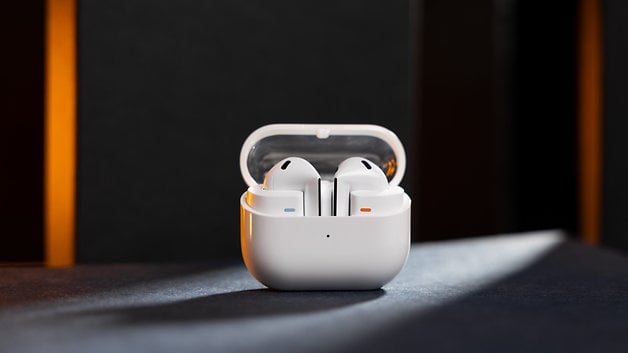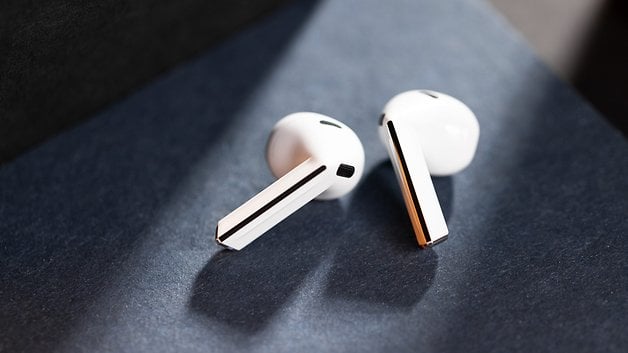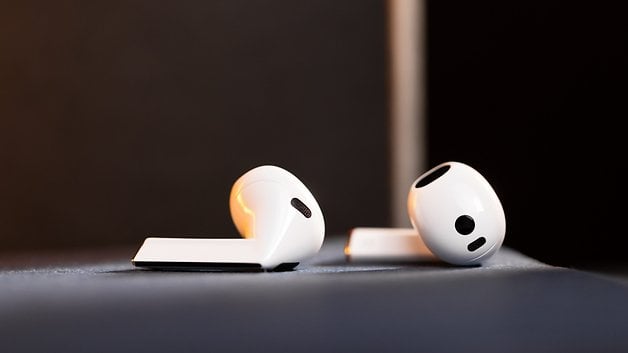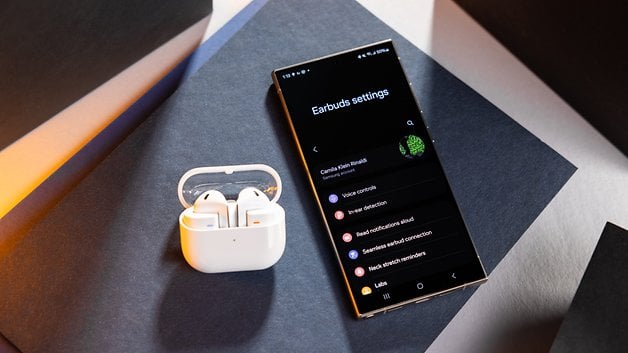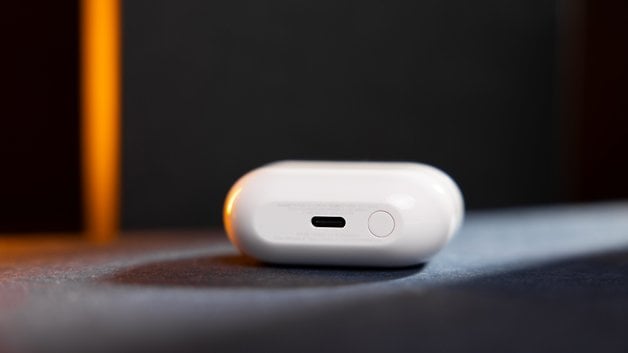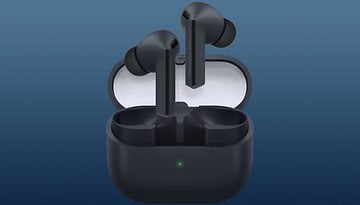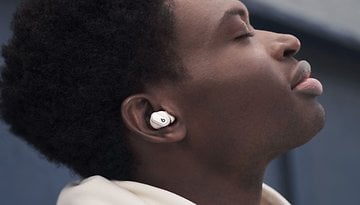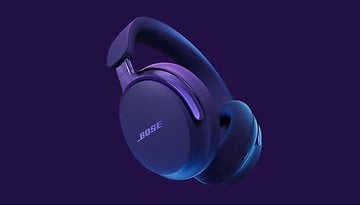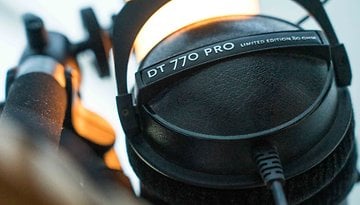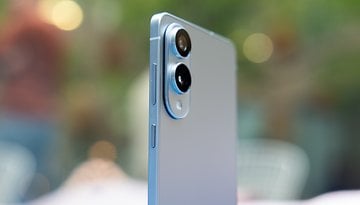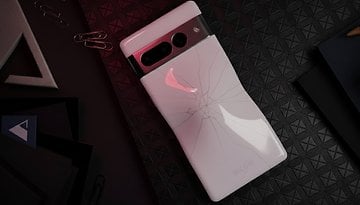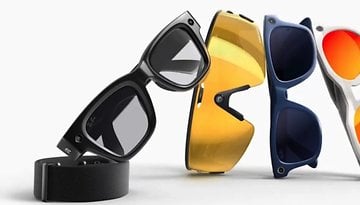Samsung Galaxy Buds 3 Review: Design Choice Ruined its Potential
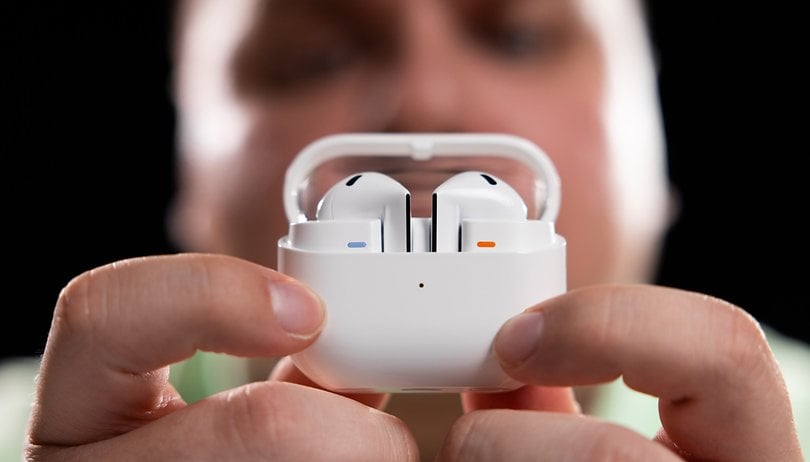

I didn't like the design of the Samsung Galaxy Buds 3 Pro but that is just my personal opinion that didn't affect the good performance of the wireless earphones. I don't like the design of the Galaxy Buds 3, either. However, this design greatly affects the user experience this time around. In this Galaxy Buds 3 review, I'll share my thoughts on whether this flaw is a reason to turn down a purchase or not.
Good
- IP57 certification
- Efficient touch and haptic controls
- Good battery life & wireless charging
Bad
- Poor fit in the ears
- Poor fit affected the audio quality
- Ineffective ANC
- Hi-Res audio reserved for new Samsung devices
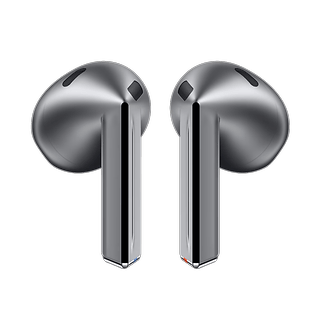
The Samsung Galaxy Buds 3 in a nutshell
The Samsung Galaxy Buds 3 has been available since July 24, 2024. Samsung's wireless earbuds are priced at $179.99 a pop. Unlike the Galaxy Buds 3 Pro (review), these are open-ear headphones. They do not come with a silicone tip that sinks into your ear canal. They simply rest in your ears.
Design
The Samsung Galaxy Buds 3 are open-ear wireless earbuds. That's their primary flaw and happens to be close to a deal-breaker for me. The almost non-existent fit offered by Samsung's earbuds makes them difficult to use in my eyes (and ears!).
Pros:
- IP57 certification.
- Compact case.
- Easy-to-handle triangular stems.
Cons:
- Almost non-existent support due to the open-ear form factor.
- Colored stripes at the bottom of the stems spoil the design.
The Galaxy Buds 3 are available in two colors: white and silver. They are IP57-certified for water and dust resistance. They are fairly light, weighing just 4.6 g per earbud. These are open-ear earbuds. Like AirPods 4, there are no tips to push into the ear canal, unlike other in-ear headphones. The earbuds simply rest in the ear.
The Samsung Galaxy Buds 3's case is fairly compact. Its cover is made of transparent plastic and each earbud has a small colored strip at the bottom of its stem to distinguish the right from the left. The stem is triangular in design with tactile surfaces.
The angular shape of the earphone stem makes them easy to handle. I'm not a fan of the semi-transparent case, but it makes it easy to check whether the earbuds are inside or not. The IP57 rating doesn't make the earbuds suitable for sports, however, as they don't have a good grip at all.
It's mainly the open-ear format that gave me problems. The earbuds really don't fit well in my ears. As soon as I move my head, put on a hoodie, or chew, the earbuds get dislodged a little. I was constantly afraid of losing them when walking down the street or taking public transport.
I think this design flaw is a real problem. It affects everything from audio quality to Active Noise Cancellation. It's a shame because the Galaxy Buds 3 has a lot going for it on paper. It would have been a good idea to add removable retaining wings, or at the very least, a slightly grippier coating around the tip of each earbud.
Audio quality
Samsung's Galaxy Buds 3 has everything it takes to deliver excellent audio quality. However, unless you're in a quiet environment and don't move around too much, you won't get enough out of them.
Pros:
- If the earbuds fit well in the ear, the sound quality is very good.
- Balanced audio signature under the right conditions.
Cons:
- If the earbuds don't fit properly, the sound quality is poor.
- Samsung's exclusive SSC-UHQ codec.
The Samsung Galaxy Buds 3 features 11 mm drivers. Compared with the Pro model, the 6 mm planar driver is lost in transition. The wireless earbuds support Bluetooth codecs SBC and AAC, as well as Samsung's SSC codec and its SSC-UHQ version. This "Ultra high quality" codec enables listening to 24-bit tracks at 96 kHz. Technically, the Galaxy Buds 3 is Hi-Res certified.
However, this UHQ function only works with a fairly new Samsung smartphone, so its usefulness is relatively limited. Samsung doesn't indicate the bitrate either, but I doubt we're talking about lossless quality here.
- We explain about the audio quality of your headphones
Technicalities aside, the audio signature of the Galaxy Buds 3 depends largely on how they fit in your ears. Under ideal conditions, with the earbuds firmly in place, you get a fairly classic W sound. Bass is a little flattered, with good depth and impact. The midrange is neutral, but voices and instruments are clearly distinguishable. The sound is rich and detailed. Even without the UHQ function, I found the definition to be very good.
However, in most cases, the earbuds didn't fit properly in my ears. This meant having the audio quality take a hit. The bass became far too absent, the midrange took a back seat too, and the treble took up far too much space. As a result, we have a lot of sibilance problems with "F", "S" and "Ch" sounds, which were too strident at times. The rest of the musical message sounded hollow.
You can certainly boost the bass via Samsung's excellent equalizer but you can't work miracles with that. The sound lacks texture, it's dry. I'm convinced that this is due to the open-ear format, which is ill-suited to my morphology. Technically, the Galaxy Buds 3 can produce very good sound. That's the biggest shame.
Active Noise Cancellation (ANC)
The Samsung Galaxy Buds 3 feature Active Noise Cancellation (ANC). As with audio quality, ANC quality is far too dependent on keeping the earbuds in your ears.
Pros:
- -
Cons:
- ANC is ineffective due to the open-ear format.
- ANC is not manually adjustable.
With open-ear earbuds like the Galaxy Buds 3, passive noise isolation is virtually non-existent. There's nothing to obstruct your ear canal and prevent ambient noise from seeping in. To rub salt into the wound, Samsung's Active Noise Cancellation is not manually adjustable. You can turn it on and off, but you can't increase its intensity.
Personally, I didn't find the Galaxy Buds 3's ANC to be effective. You can certainly feel the difference when ANC is enabled and disabled. However, ambient noise is not sufficiently attenuated. Even structure-borne noises, which is the easiest to attenuate, seep through. Airborne noises such as voices, doorbells, wind, etc., pass through all too easily.
That's when the earbuds fit properly in the ears. This is because ANC can only be enabled when the earbuds are detected as worn. However, the problem of them getting dislodged all too easily interrupts the ANC.
I sincerely believe that Samsung could have done without Active Noise Cancellation for this model. The Galaxy Buds 3 don't have a transparency mode either. For once, this is an advantage made possible by the more open format. You don't need it as the earbuds let you stay aware of your sound environment no matter what.
Features and applications
The Samsung Galaxy Buds 3 retain most of the functionality of the Buds 3 Pro. That's a good thing. Several functions are exclusive to the Samsung ecosystem. Apple also does the same with its AirPods, so we can't blame Samsung for following in their stead.
Pros:
- Precise equalizer.
- Complete Android application.
- Wear detection.
Cons:
- No true multi-touch capability (works with Samsung devices only).
- Haptic controls are not very customizable.
The Galaxy Buds 3 works with the Galaxy Wear application for Android devices only. You can connect them to an iPhone, but you don't have access to any of the settings. I wouldn't recommend buying them if you're using an Apple iPhone. If you have a Samsung smartphone, all settings can be performed via the smartphone settings without the need for an app.
Samsung headphones support multipoint Bluetooth connectivity, but it only works between two Samsung devices. Samsung's app here is very comprehensive within the Samsung ecosystem. There's the Find My Device function and, above all, wear detection.
The Galaxy Buds 3 is equipped with touch and haptic controls. Touch controls simply involve sliding your finger along the front of the earbud's stem. This raises or lowers the volume. These controls are not customizable but you can change the haptic controls. These involve pinching the earbud stem.
| Left earbud | Right earbud | |
|---|---|---|
| 1 pinch |
|
|
| 2 pinches |
|
|
| 3 pinches |
|
|
| Long pinch |
|
|
Battery and charging
The Samsung Galaxy Buds 3 boast a battery life of 6 hours without ANC and 5 hours with ANC. With the charging box, total battery life is rated at up to 30 hours. That's pretty average numbers.
Pros:
- Good battery life.
- Wireless charging is supported
Cons:
- -
Personally, I used the Samsung wireless earbuds according to these settings:
- 100% charged.
- Wear detection was disabled.
- No charging at all.
- Active Noise Cancellation was always on.
- 50% listening volume.
- Paired with an Android smartphone.
- SBC/AAC codec.
I was able to achieve and very slightly exceed the 5 hours of battery with ANC as claimed by Samsung. Battery life is decent, well within the average for this price range, but no more than that.
I was pleasantly surprised Samsung offered wireless recharging for its earbuds' case. The manufacturer could well have reserved this function for the Pro model but still went the extra mile. The earbuds can be recharged at least four times via its case.
Technical specifications
| Technical specifications | |
|---|---|
| Device | Samsung Galaxy Buds 3 |
| Image | 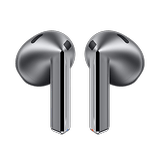 |
| Design |
|
| Weight |
|
| Dimensions |
|
| IP rating |
|
| Audio |
|
| Frequency response |
|
| ANC |
|
| Bluetooth |
|
| Codec |
|
| Multipoint |
|
| Battery life |
|
| Autonomy with case |
|
| Wireless recharging | ✔️ |
Conclusion
Would I recommend you buy the Samsung Galaxy Buds 3 for $179.99? No.
I hesitated a lot before rating these wireless earbuds. The open-ear format didn't suit my ears at all. The earbud kept on dislodging and this greatly affected the audio quality as well as the quality of the Active Noise Cancellation.
However, I'm aware the open-ear format is very popular. A lot of people hate in-ear earbuds, which are too intrusive and uncomfortable. If you happen to fall into this category of users, I'd advise you to try the earbuds out before you buy them. Make sure they fit snugly in your ears.
This design "flaw" is all the more unfortunate because technically, the Galaxy Buds 3 is a very good pair of wireless earbuds. Personally, I don't use my wireless earbuds at home, which is quiet most of the time. I move around with them, on my way to work, on the street. If I have to tape them to my ears to enjoy all the good things it offers, the concept is redundant to me.
What do you think of the Samsung Galaxy Buds 3 after this comprehensive review? Do you think I've been too harsh on Samsung? I hope to be able to review Apple's AirPods 4 soon. They have the same open-ear format. I'll let you know if I suffer from the same problems and I am curious to know if any of you share my feelings about open-ear wireless earbuds.
